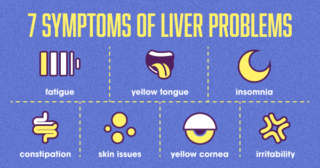
April is National Minority Health Month (NMHM), a time to raise awareness about health disparities that affect people from racial and ethnic minority groups. Liver disease is growing in prevalence in the Hispanic population. It is also a leading cause of death in the U.S. Through education, we can lower the risk. Through participation, we can expand treatment options. These are some of the reasons minority participation in liver research matters.
Why Minorities Should Participate in Research
Diversity is vital in research because understanding how a condition affects different populations helps design safe, more effective treatments. Diversity is not just race and ethnicity but also gender, age, etc. Participants in clinical trials should represent the patient populations that will use the medical products. The reason is that people of different ages, races, and ethnicities may react differently to medical treatments.
Hispanics and Liver Disease

The most prevalent liver diseases in Hispanics are non-alcoholic fatty liver disease (NAFLD), chronic hepatitis C, alcoholic liver disease, cirrhosis, and liver cancer. The risk factors for these conditions include:
- Obesity
- Inactive lifestyle
- Poor diet
- Metabolic syndrome

When you look at the prevalence of these risk factors in Hispanics in the U.S., the results are:
- 43% of Hispanics are considered obese
- 35% of Hispanics have metabolic syndrome
- Hispanic diets are traditionally high in carbohydrates and added sugars
In addition, many Hispanics in the U.S. possess a gene variation, PNPLA3, which has an association with a heightened risk for NAFLD and non-alcoholic steatohepatitis (NASH).
Liver Health is in Our Name!
Implementing the best education practices toward healthy lifestyle changes will help address the risks associated with cultural aspects. However, we need to do more work regarding the genetic predisposition and expanding treatments for individuals already living with liver disease. Why not trust the experts with “liver health” in their name when it comes to liver disease? For NMHM, consider giving back through research.

Arizona Liver Health offers FREE fibroscans to adults at risk of liver disease and a chance to help advance care options for liver diseases through our studies. Get involved today! Contact us at (480) 470-4000 to learn more about your liver and options for treatment of liver disease, or visit our website.
Sources:


